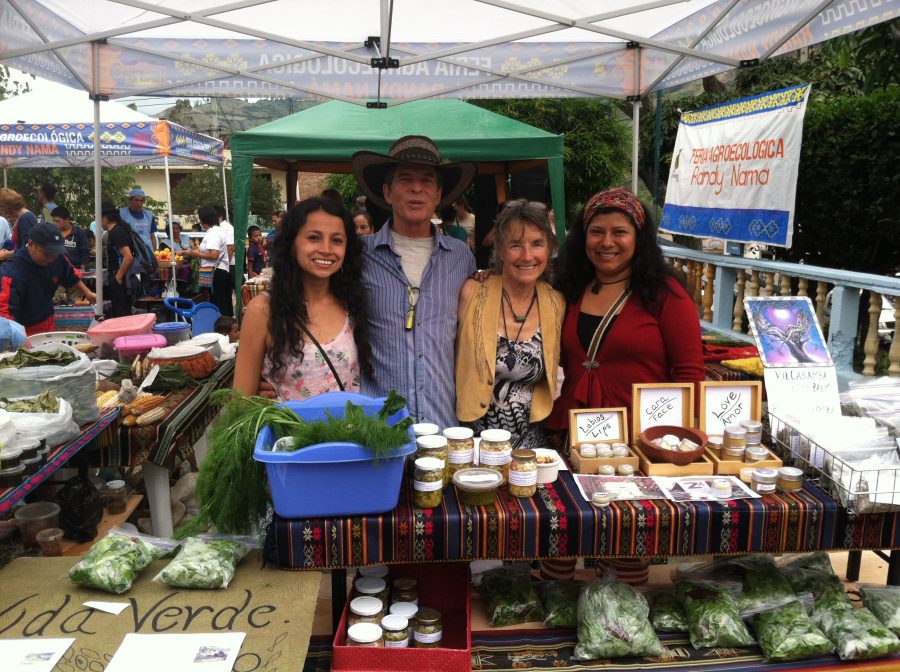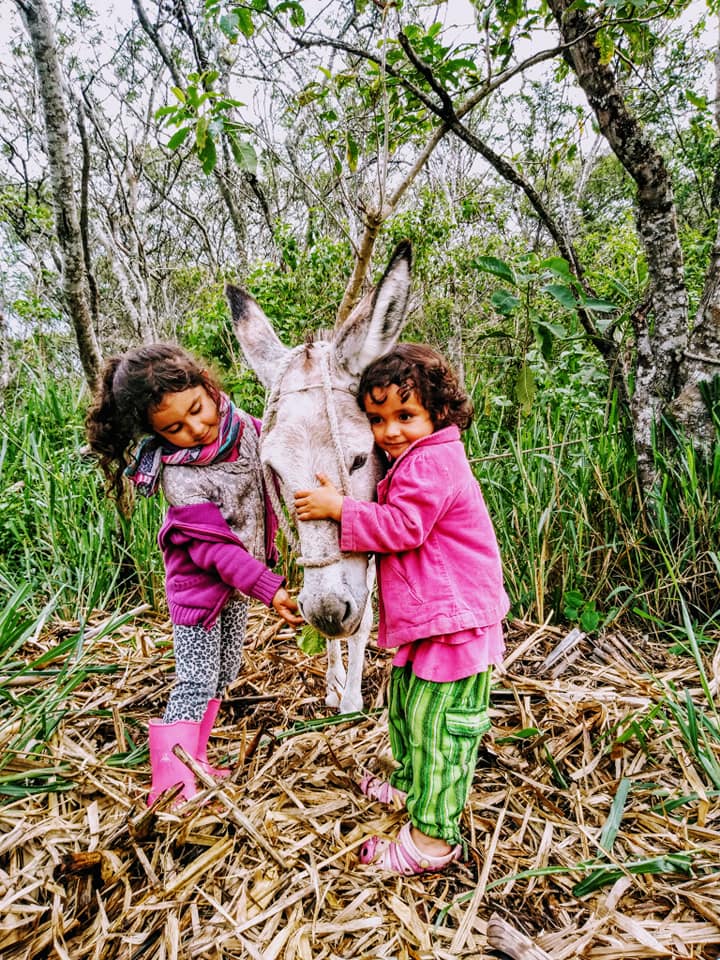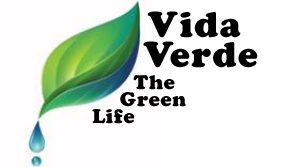The Yupaichani Network is a consortium of friends & associates in Vilcabamba, Ecuador that is working together on five local initiatives that address global problems. “Yupaichani” is Quechua for Thank You Pachama! Pachamama includes the Earth, the sky, the cosmos and all time. Vilcabamba is known as a legendary healing retreat of for royalty during the time of the Incan empire.
We invite you to help us build our model for local ecological & economic regenerative action.
Our Mission: By caring for the Earth under our feet, we learn to rebuild kinship with nature, and on every level, in terms of personal-neighborhood-bioregional relationships.
To join our network and support these life-support projects, go here: www.patreon.com/YupaichaniNetwork
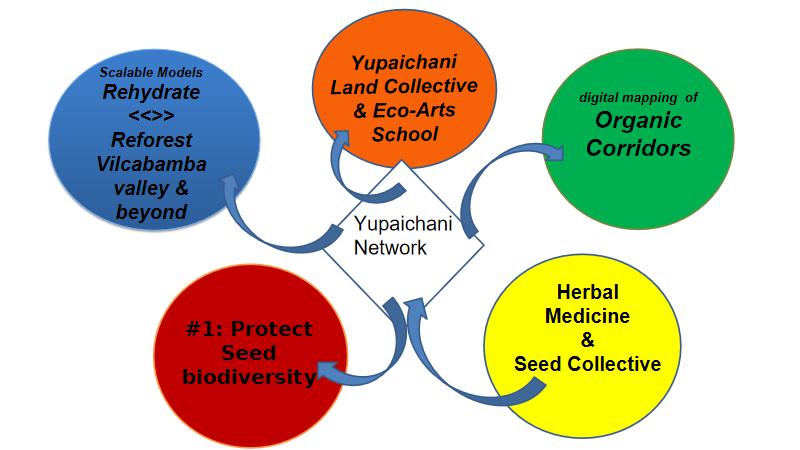
1st and foremost! Seeds!
Protection of seed biodiversity and sovereignty is a key to survival of the human species! 96% of all food seed species have been lost to the 6th Great Extinction that we are now in. Yupaichani Network and the Vilcabamba Organic Market represent the two southern provinces of Ecuador in RED Guardianes de Semillas, the national seed protection group that coordinates local seed saving hubs throughout Ecuador, and much of South America.
www.redsemillas.org www.allpachaski.co
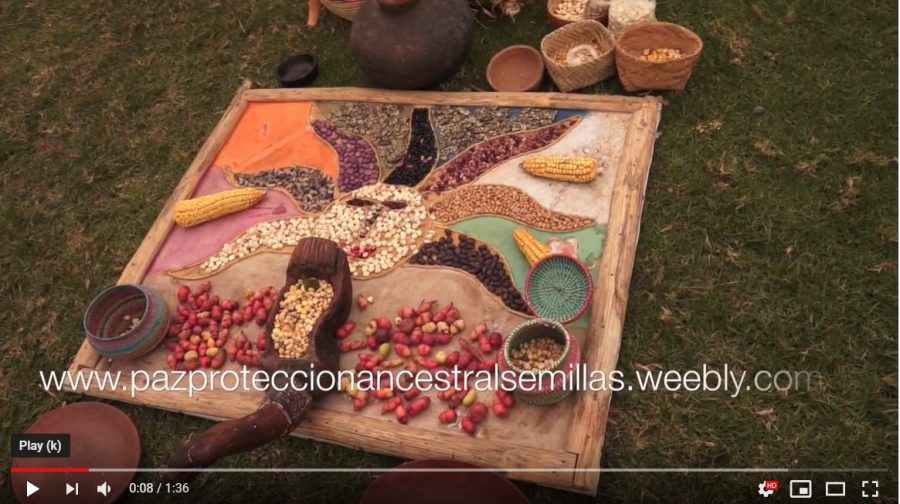
Local seed exchange hubs
Local seed exchange hubs are an important ingredient in building genuine food security. In Ecuador, keeping seed producing cycle after cycle is the best way to preserve seed. With Ecuador’s extremely high levels of biodiversity, the entire country is like a living seed bank. Within Ecuador, the Vilcabamba area is one of the most biodiverse, in part because it is a low point in the Andean cordillera. This altitude supports species from the three principle climate zones, the coastal plane, amazonia and the sierras.
Ecuador’s constitutional ban on GMO’s and seed sovereignty in general is defended strongly by grassroots activism. This video shows such a memorable moment in Vilcabamba’s robust & artful version of seed activism.
The initiators of the Yupaichani Network have sponsored local Seed Exchanges in Vilcabamba since 2014, and maintained active representation in the national network, Red de Guardianes de las Semillas.
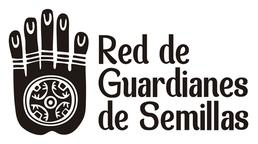
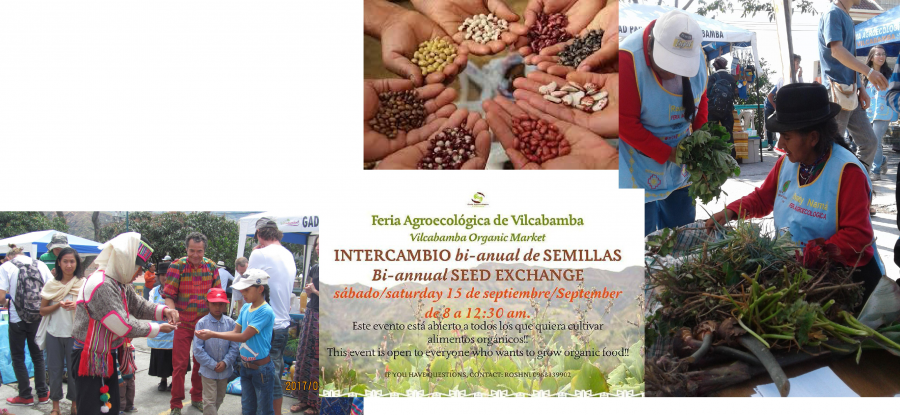
We are taking our passion for seeds and for herbal medicine into the realm of business to create income streams for many, while doing our conservation work.
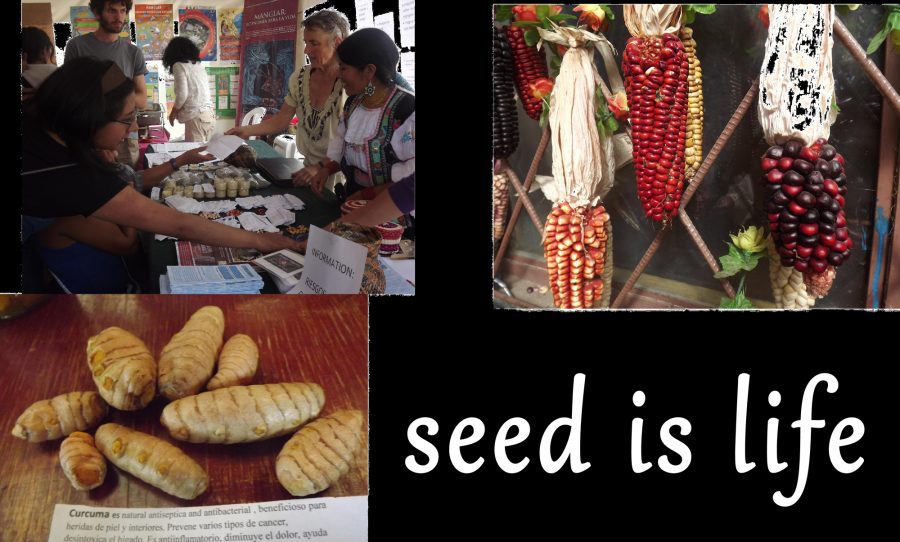
#2 The Yupaichani Women’s Herbal & Seed Collective
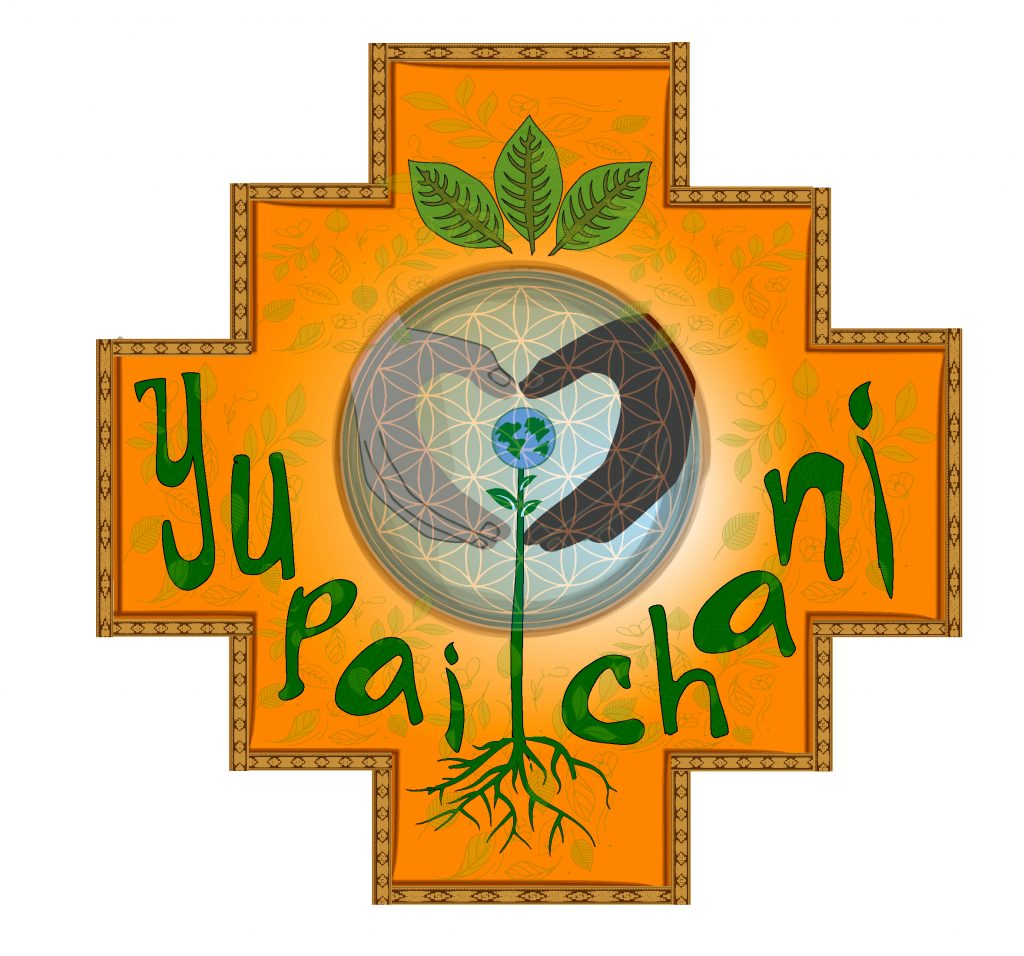
Our initial offering is 10 herbal blends to support excellent health. These are now available in Vilcabamba’s “artesenal” stores, which can legally sell cottage-industry scale agricultural products to the public. We are in the process of application and fund-raising to realize “Registros Sanitarios” to allow our products to be sold nationally in “eco-tiendas”(locally owned organic stores). Medicinal herbal tinctures are next.
We have a guiding council of women that are all producer/vendors in the Organic Market, which means we have strong shared values and sense of purpose and experience working with each other–and with herbs. Thus, we have the Organic Market’s Peer Review Organic Guarantee System (SPG) backing us. It is very strong. As we grow, our SPG vetted membership will grow too. Our council members grow what we can, and buy what we need from other members of the Organic Market. Our aim is to produce income streams for many. We can help the Organic Market grow by bringing more members into the market that want to grow herbs for us. The market helps us by maintaining the SPG Organic Certification with surprise inspection visits to all the member farms twice a year. It is a mutually beneficial relationship.
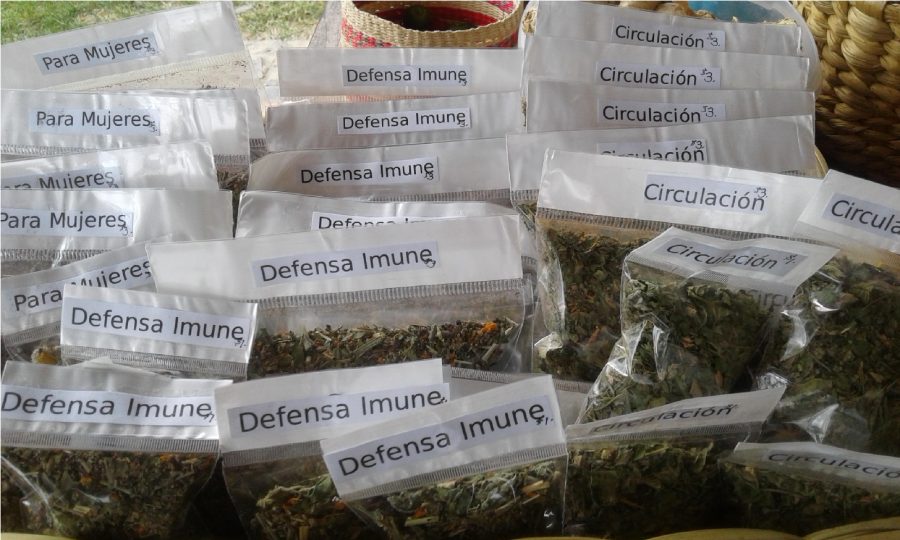
Our small cooperative is set up to enable it to grow to a national scale, yet is operating efficiently currently at a small scale. We buy from many small producers that are so in need of income! Visit our website.
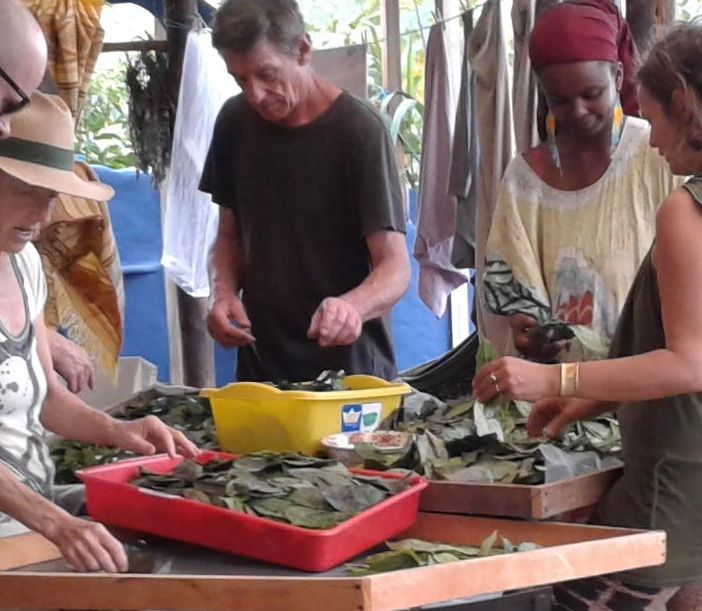
Photos of other members of the Vilcabamba Agroecologico Organic Market that supply herbs for the Yupaichani Herbal Collective. All members of our organic market are Vendor / Producers. That is, we sell what we grow, with a few exceptions for processed food vendors, which have their ingredients vetted. This strengthens our Organic Peer Review Guarantee System (SPG). For our farm inspection visits, the volunteer committee takes photos of the produce displayed, so the evidence of that produce can be verified on the surprise visit the following week. It means we have a strong organic guarantee and the members strongly back it. The local municipal government has endorsed our market with organic certification.
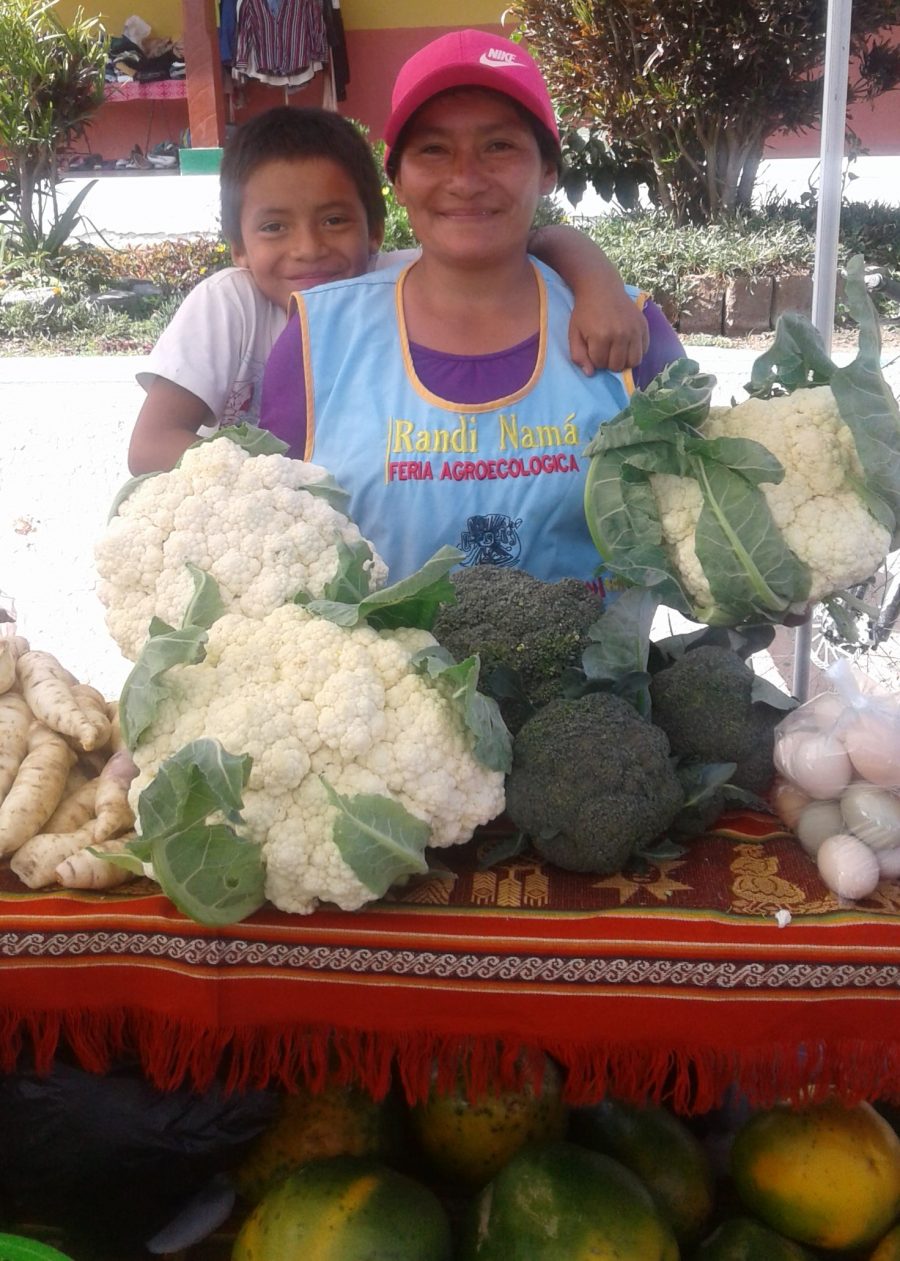
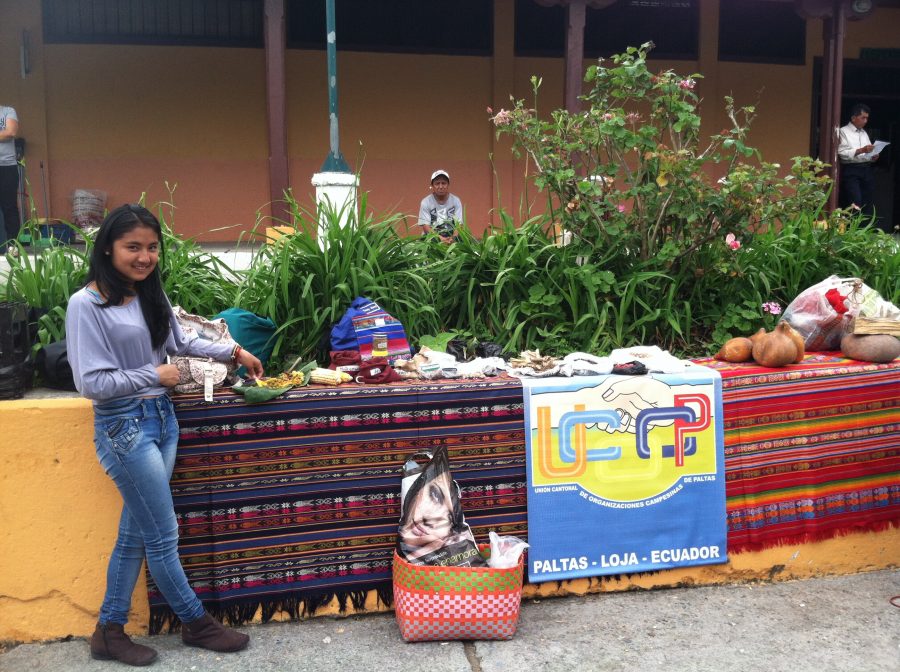
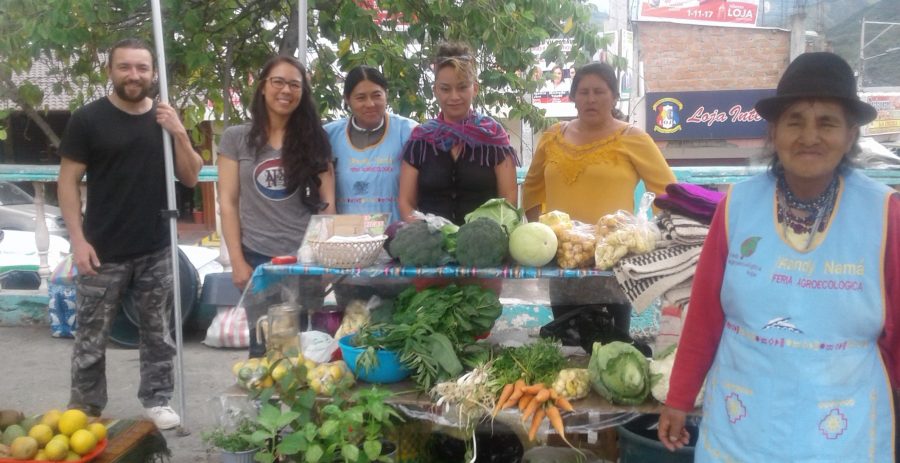
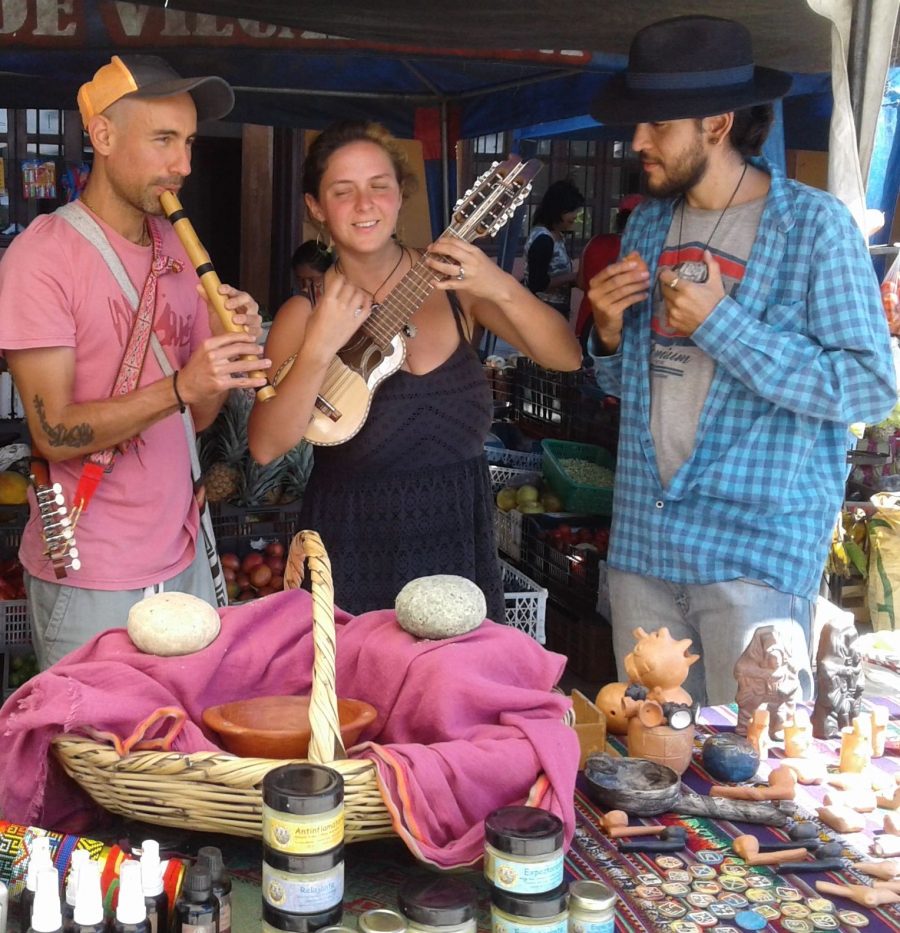
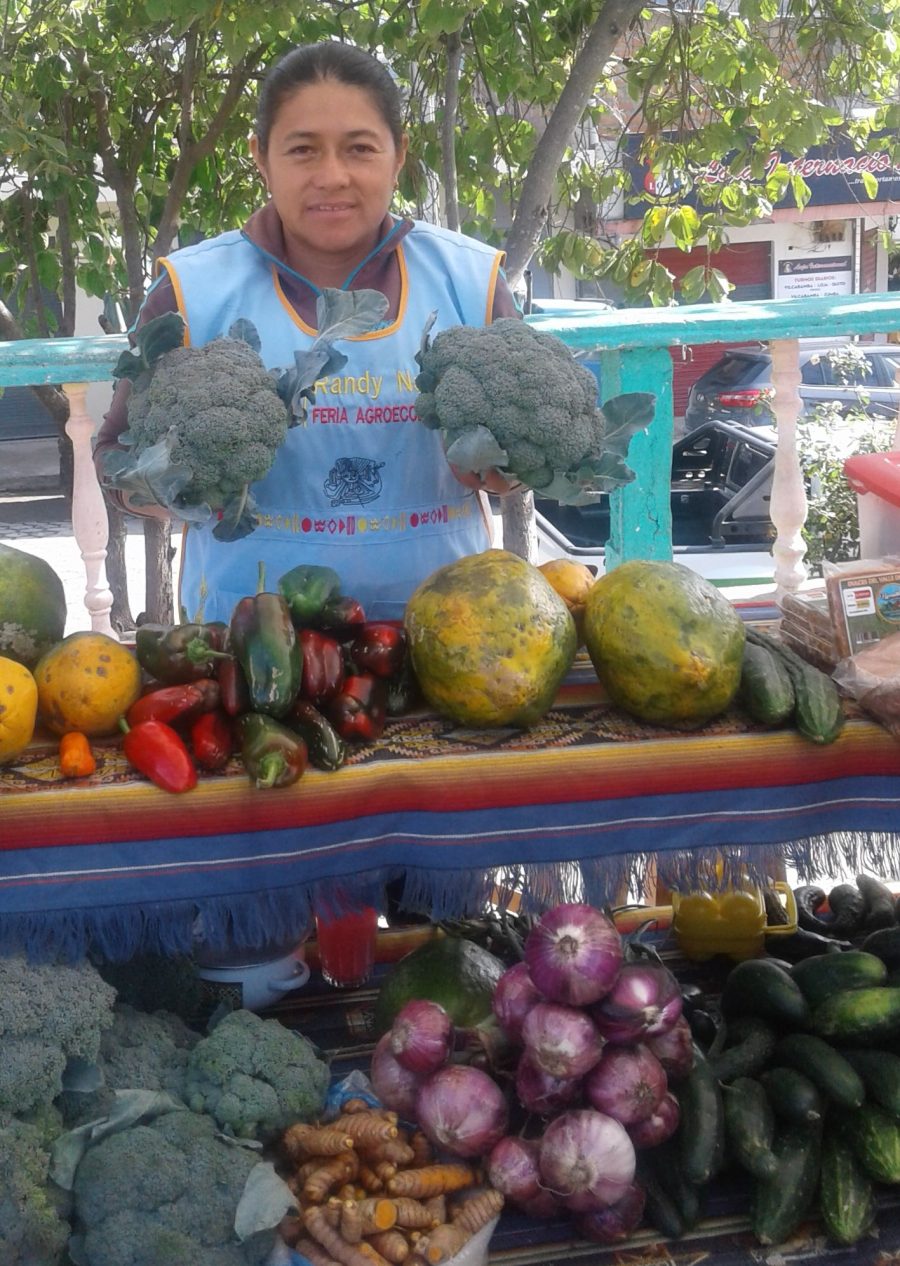
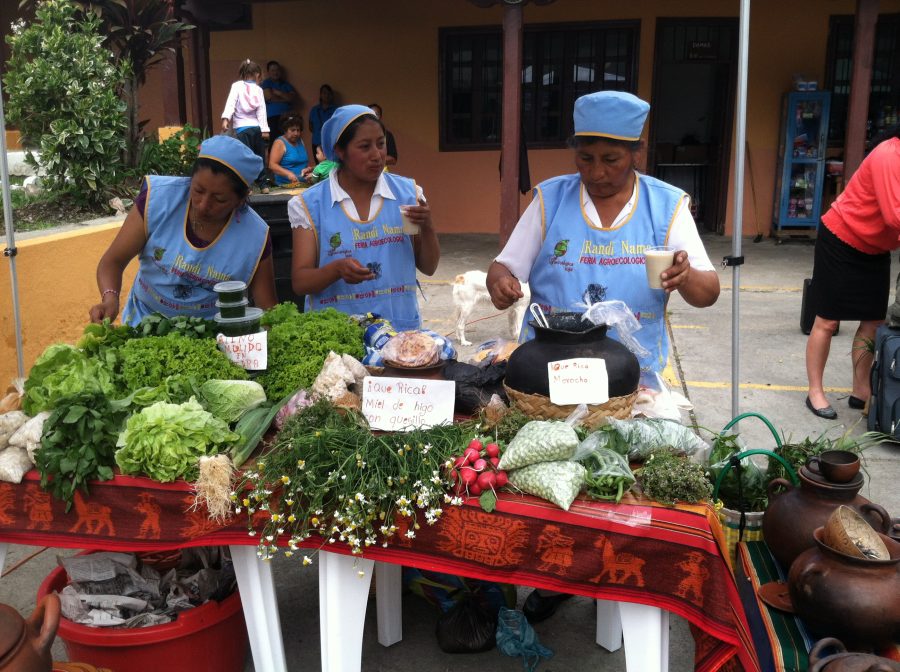
Next steps for our herbal collective
First, we need to obtain our registro sanitarios for the herb blends, requiring approximately $1200. We want to increase our product lines to include tinctures, essential oils and herbal capsules and make them available nationally and perhaps for export. This is our current fundraising goal.
Rehydrate << >> Reforest Vilcabamba
Join us in dreaming/ scheming/ planning & planting
these dry hills into forests, as they were only a couple of decades ago! It is easy to see there are only a few remnants of forests in the uplands of Vilcabamba Valley.
We are modeling agroforestry on 3 scales, using the rainwater penetration techniques demonstrated in our video, which has nearly 150k views :
— Small Scale model: Finca Vida Verde, owned by Zia Parker and Robert McEldowney, in San Jose de Vilcabamba with just one hectare showing that forest trees mixed with fruit trees can increase food production and property value.
— Mid-Scale Model: Rancho El Mirador, 17 hectares, 800 m. rainwater penetration canals, 800 native trees in 16 species, demonstrating rotational grazing adjacent to agroforestry installation while trees reach maturity to allow grazing under & forage of the trees, San Jose de Vilcabamba.
— Large-Scale Model: the farm of Victor Macas, 140 hectares, mixed cropping and agroforestry, in Sacapo, San Pedro de Vilcabamba
See our video: https://www.youtube.com/watch?time_continue=2&v=Q-NuXHslihI
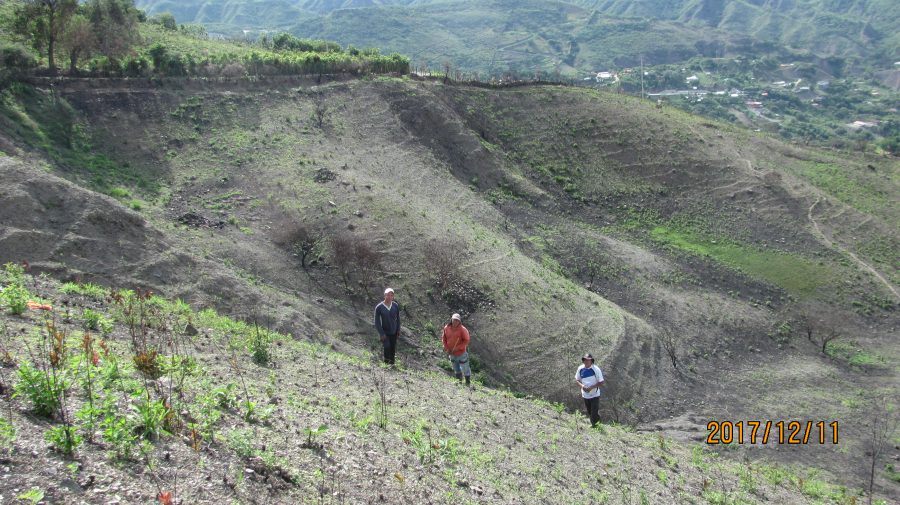
With the current unpredictability of weather, reforestation survival rates can be unpredictable. Earthworks to reshape the earth allowing rainfall to penetrate for water storage in the earth increases survival rates.
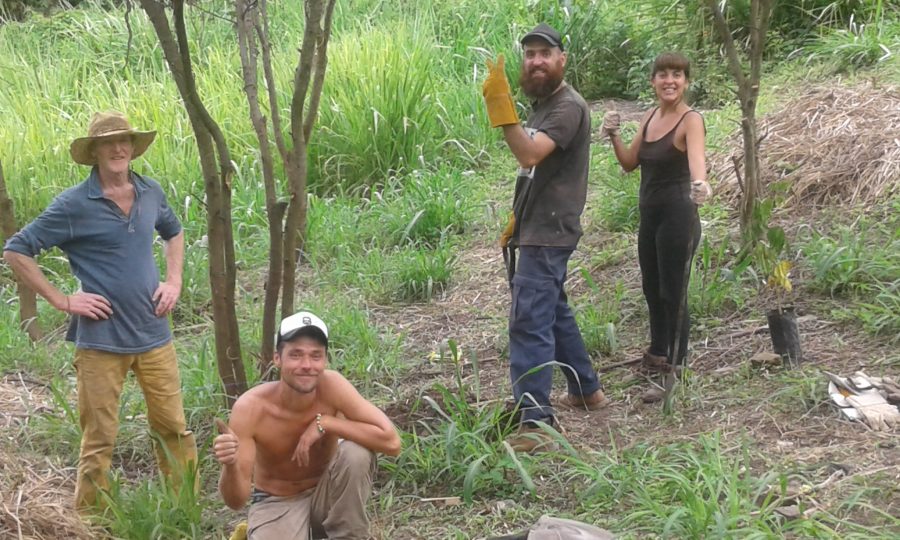
When the San Jose fire of late 2017 laid bare the extreme erosion on his land, Zia sought out the owner of the source of the San Jose spring and stream, James Williams invested over $6,000 for planning & implementation of 800 m. of contour canals with precise slight slope away from the erosive ravines. Thank you James! for investing money in helping the Earth in practical ways! This allows for rainwater penetration into the extremely steep slopes, providing support for trees to establish.
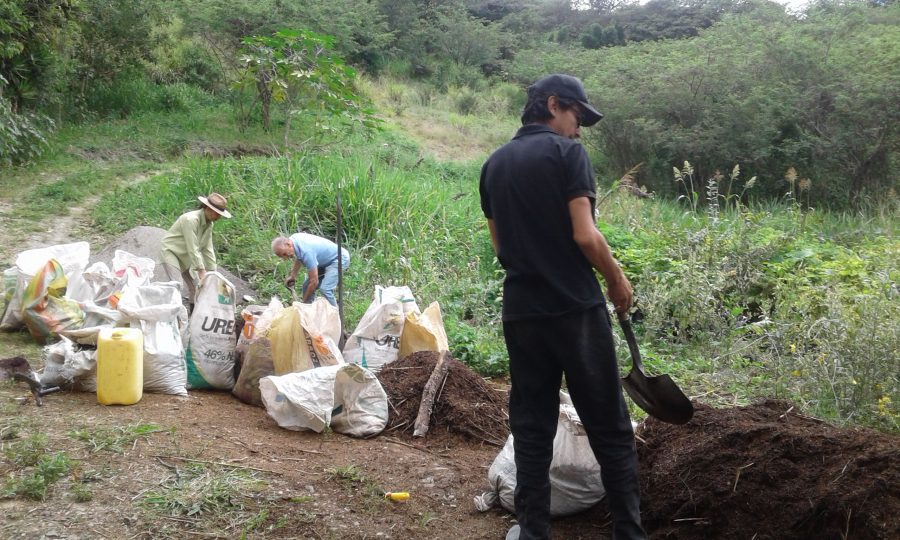
When Jamie’s budget for the project ran dry, the Yupaichani Network stepped in so we could go forward tree planting at the onset of the rains in November 2019. Our funds provided materials for over 120 grain sacks of compost we made, plus transportation for the volunteers of 6 mingas that planted 800 trees. Also, several workers were paid to help us complete the planting plan that Zia had provided for James.
Costs: compost materials & labor-$85
Transport of 1,000 trees from Loja-$100
Transport volunteers & paid workers to planting
sites–$105
Food for volunteers-$150
Paid workers for planting-$160
Total $600

Earth Rehydration coupled with Reforestation,
El Mirador Project
San Jose quebrada (creek) watershed midsize model.
The photo to the right shows the narrow swales, with a slope within the swale of .3-.6 % to help rainwater in a strong storm move off the mountain safely without furthering erosion. These very small swales are an adaptation to the extreme slope, where collecting water-weight in a larger swale would risk slippage. The grass here is Vetiver, which forms a barrier subteraneally and above ground. Roots grow 4-5m deep and form a thick web. With time, the Vetiver grass itself creates the barrier for preventing run-off and collecting sediment.
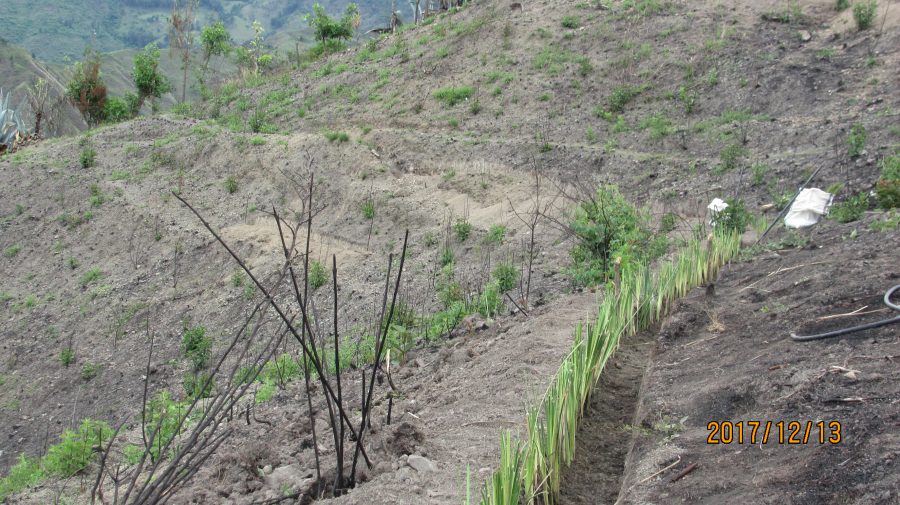
El Mirador, Early 2018. Zia, with the help of Victor Macas, directed the Saraguru crew to implement Zia’s plan for Water Retention Landscaping on this property in Nov & Dec, 2017. The contour canals are visible, pictured in the middle of the image with .4–.6 slope directed to the West, away from the eroding ravine.
For more info, see http://vidaverde.info/vilcabamba-valley-reforestation-advances/
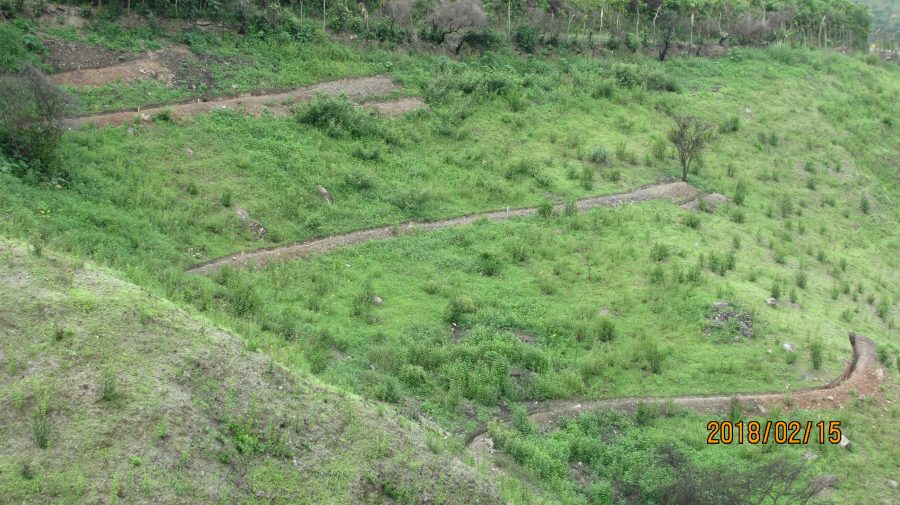
Mirador Project, primary catchment structures. March, 2018.
Pond and larger swales in the main basin, prepared for large volume rain catchment.
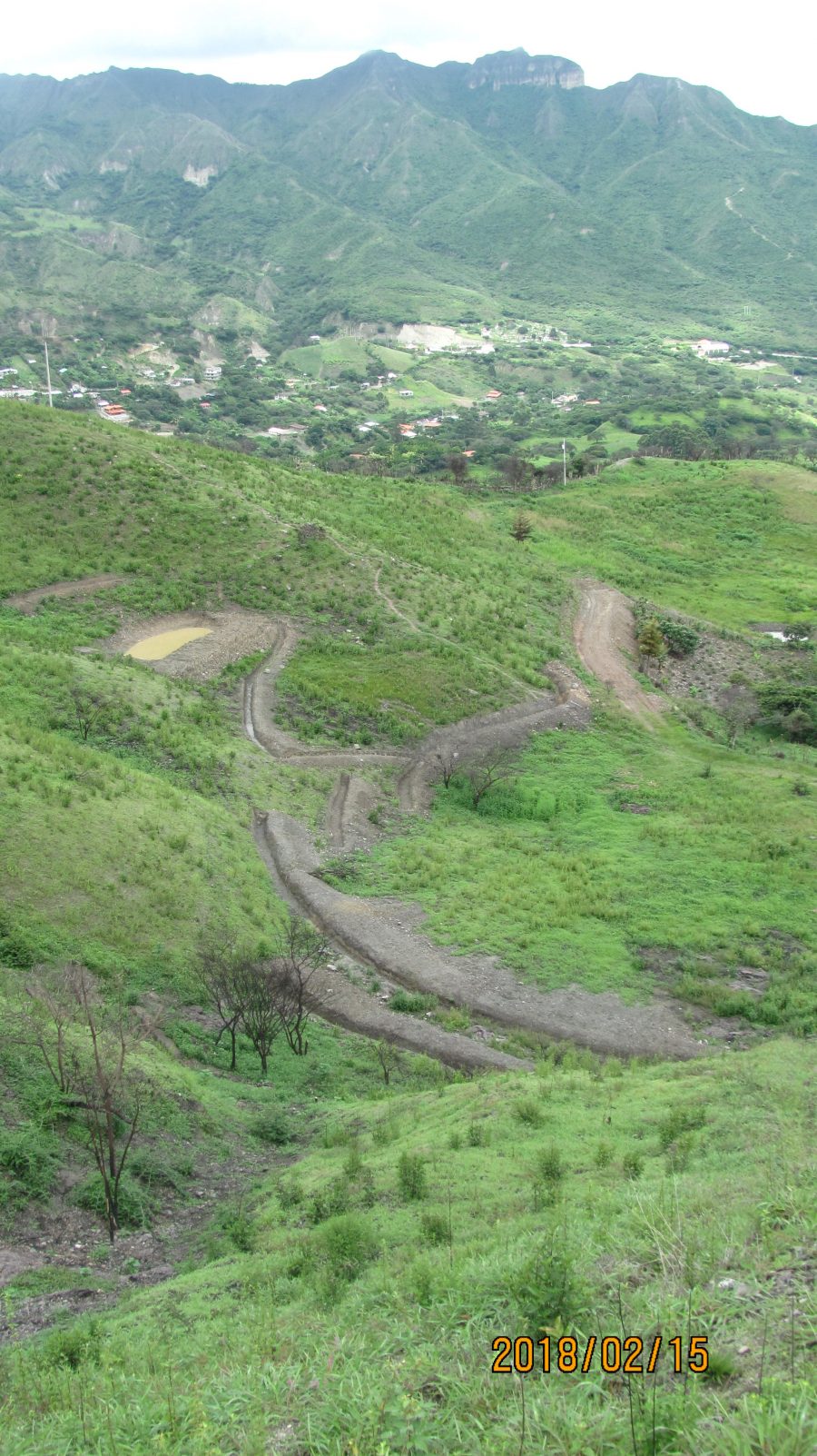
Agua Ayni, Earth Rehydration Project in Otvalo
Agua Ayni, Earth Rehydration Project as a community education design strategy. This plan lays out a strategy for expanding this type of project for wide-scale application.
For more information, see: http://vidaverde.info/water-retention-landscaping-otavalo-quechua-community/
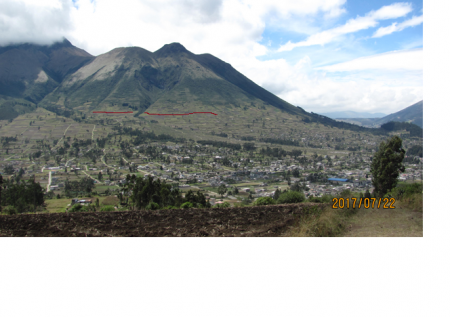
Yupaichani Land Collective and Eco Arts School
Since 1887 the well known words of Chief Seattle, “the land does not belong to us, we belong to the land” have inspired many. But who has been able to live these words? In my experience, it is not an easy thing to do.
The idea for our land collective is to create a place that is both a home and an income source for four families (or couples/ individuals). It will have several income streams and provide many community services. It will explore going beyond the current models of capitalism or socialism, seeking new pathways of building relationships of mutual respect with each other and the land.
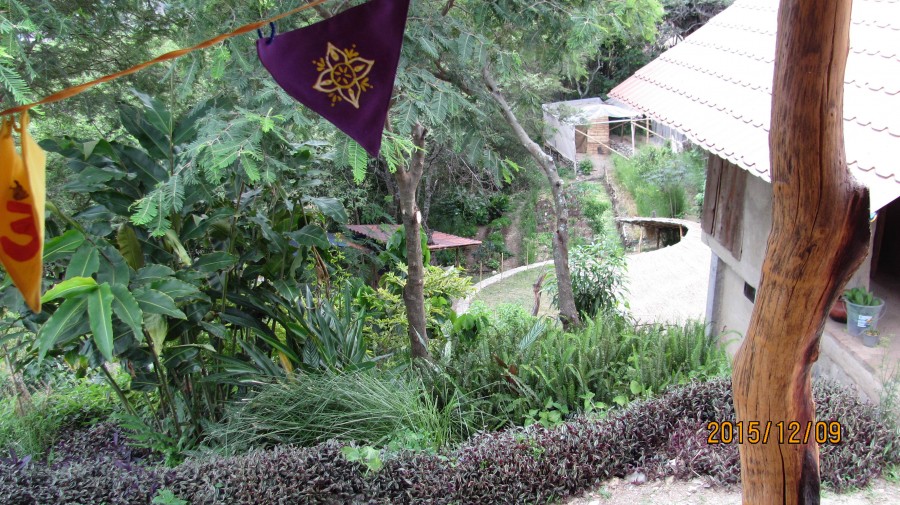
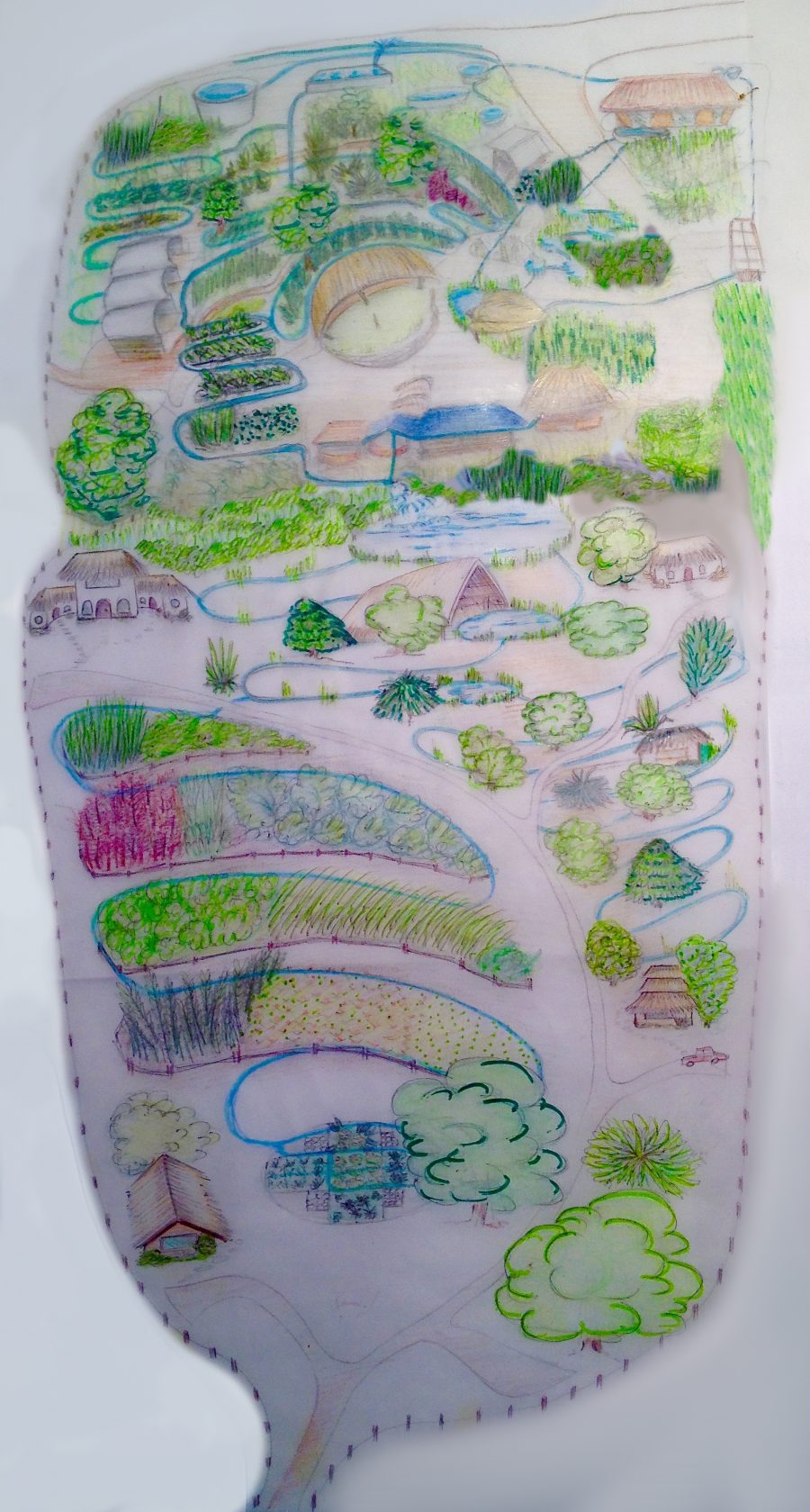
For more information on the Land Collective, see http://vidaverde.info/yupaichani-organic-community/
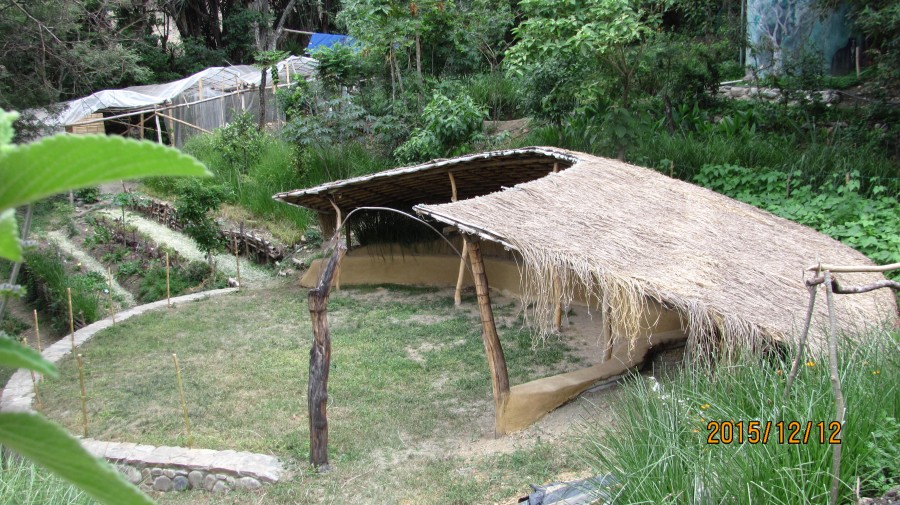
Progress in the last year: we have dug swales and a water retention pond, and built a basic access road. This project is pushing the ceiling on best practices for ecological water conservation in several ways. There are plans for a warm water therapy pool that is purified with plants and heated with renewable energy. We are also planning a natural swimming pool to be purified with plants.
We now have a large chakana shaped garden with traditional foods and medicines. This rainy season, we planted approximately 150 native trees, advancing this land in concert with it’s neighbor Finca Vida Verde as the smale-scale model for the Rehydrate<<>>Reforest Vilcabamba Project.
Of these improvements in infrastructure, the Yupaichani Network provided materials for a basic irrigation system for the new trees. (Cost $140.)
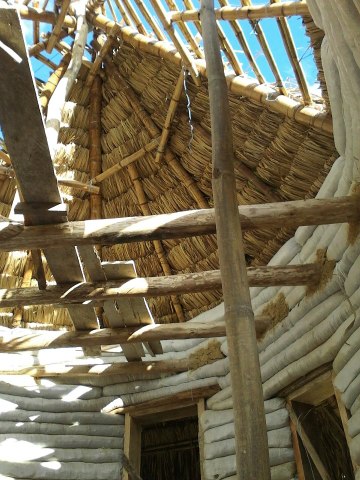
Organic Corridors
Our neighborhood, Jurupe in San Jose de Vilcabamba appears to be the first that has identified ourselves as an organic cooridor. We are 6 contiguous properties with approximately 12 hectares. We have plans for promoting awareness of who are your neighbors, and what are they doing to the land & water? Our aim is to create an online mapping process, to make it desireable to live in an “ORGANIC COORIDOR”.
This project is currently on hold. Let us know if you are interested in moving it forward!
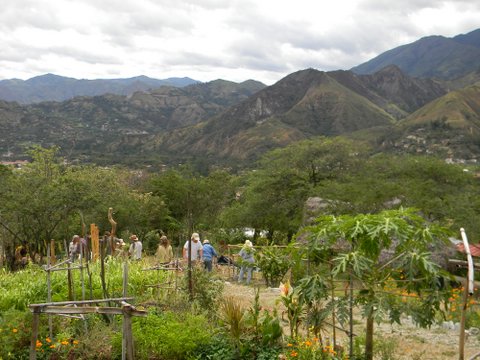
Yupaichani Network!
We appreciate you taking the the time to learn about the Yupaichani Network! JOIN US! Patreon is the Crowd Funding platform we’ve chosen because we want to stay connected with the people that love what we are doing, and want to be involved. Patreon is like Kickstarter except that it becomes a community of information exchange. Donations are on a monthly basis, and any size donation is helpful, even $1 or $2/month. Of course, you can cancel your donations at any time.
MOST IMPORTANT!! Please send this to your contacts. Ask them to consider supporting the Yupaichani Network as a model of local initiatives that address global problems.
We are asking our extended family to send these links to your extended families.
We find that people everywhere are deeply questing for answers to our current common dilemmas. The Yupaichani Network offers a great model that could be modified and scaled up for anywhere! Seeing our community organizing in response to local needs could be the inspiration your friends and family really would like to hear about and would like to support.
And of course, any amount you can donate is heartfully appreciated!
Thank you! And Yupaichani…thank you Pachamama!
